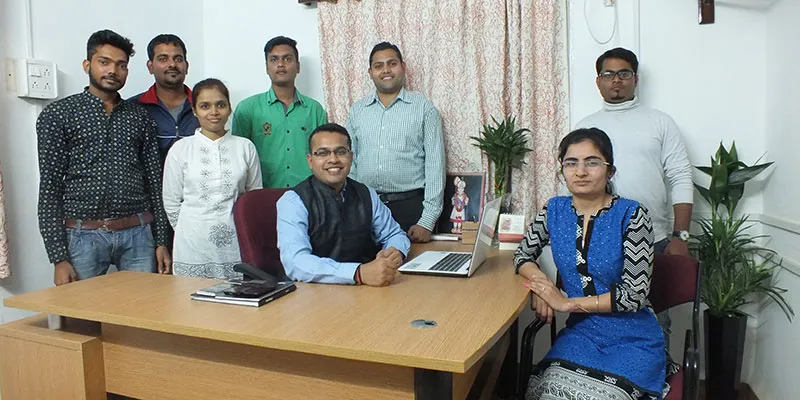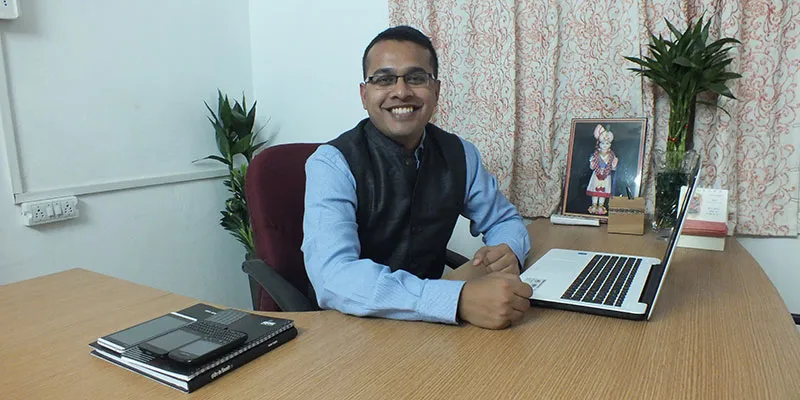Radio Raja is calling out to India’s rural masses in the most unique way
Kallan lives in a remote Indian village that is information-deprived, partly due to illiteracy and partly due to lack of any media reach. There’s no electricity, so television is a far-fetched dream and radio signals are scarce. He managed to buy a basic mobile phone from a telecom shop in a nearby market. Although he could now connect with family and relatives, he still lacked information. Someone from another village informed Kallan about a radio channel meant for rural people like him. Today, he gets updates and useful information about crops and farming, and entertainment, courtesy Radio Raja.

Radio Raja is a one-of-a-kind radio channel that does not need the Internet or even a radio frequency for listeners to tune in. A listener simply needs to give a missed call on 1800 25 888 888 and Radio Raja calls back. Receivers can listen to an unlimited flow of various programmes free of cost. This is possible on any regular pre-paid or a post-paid connection (no smart phone needed). In this way, Radio Raja surpasses the barriers of communication, illiteracy, lack of radio signals and electricity in rural areas. Radio Raja gets around 2,000-3,000 calls every day from the remotest villages of Madhya Pradesh, Maharashtra, and Uttar Pradesh.
Reaching the information-deprived
Radio Raja Founder AbhiramBhise (28) is an M. Tech from International Institute of Professional Studies (DAVV, Indore). He founded Converge, a research and communications company that helps political leaders connect with their respective constituencies through relevant information. In two years, Converge has become the trusted adviser to the country’s leading businesses across manufacturing, government, education and technology sectors. Ironically, the desire to work for an information-deprived population was triggered while Abhiram was working for the urban population that suffers from information overdose.
“There are hardly any exclusive rural channels (both radio and television) or print news providers of any significance that are relevant to this section. These are areas where print and television media are not relevant due to illiteracy and lack of electricity. Radio is performing relatively better, but there are signal issues and options are limited” shares Abhiram.
Encouraged by his role model and father Shri Jayant Bhise, when Abhiram decided to address this section, he knew of the challenges ahead. “But I found the rural population to be more receptive and respectful towards relevant media than their urban counterparts. There is a scarcity of media bandwidth, but people are information-hungry. Being predominantly agrarian, rural society craves more ‘Infotainment’ rather than pure entertainment,” shares Abhiram.
“I am also fortunate to have like-minded friends like Atul Singh Baghel, who committed one full year just to this venture. One of my juniors and friends Pankaj Rana has also joined me. Moved and encouraged by their faith, I decided to launch Radio Raja in August 2015,” says Abhiram.
Radio Raja has produced several programme capsules. Each capsule begins with the signature greeting following by a two-three-minute Bollywood/folk song roughly based on the theme of that capsule. Then, there are thematically lined-up programmes such as talks on current affairs and issues; healthcare information; Ayurvedic tips; Indian history; fact-based programmes discussing geography, finance, agriculture; and entertainment modules with jokes, and poetry readings.
“My children love the ‘Nani ke nuskhe’ (Grandma’s remedies) programme. I enjoy listening to information related to geography and agriculture,” shares 35-year-old farmer Shobharam from Lalbagh village in Madhya Pradesh’s Dhar district. Radio Raja is the only connection this village has to the outside world.
Another listener, 24-year-old Umashankar Vishwakarma, is a wedding photographer from Thapna village in Khandwa district. He says, “I really like listening to Indian history. Since I can’t read very fast, I prefer listening to Radio Raja.”

A rural radio and revenues
Radio Raja is a bootstrapped venture that plans on growing into a proper Internet-based Radio station with 24×7 infotainment focusing only on the rural and remote areas. And the market seems to be huge. “As much as 70 per cent of the 1.28 billion Indian population resides in rural India. At least 45 per cent of rural areas are still waiting to get tapped by any media. That’s our target market where we plan to open up sub-stations in villages and blocks. We are working on technology enhancements to be able to provide selective infotainment as per the choice of the listeners,” adds Abhiram.
The startup also has a revenue plan in place. “We offer advertisements on an impressions basis to companies for generating revenue. As our listener base is growing, bigger and better established companies are approaching us. In fact, our first customer was a noted rural marketing company, which used our audience base to reach out to their potential customers,” he shares.
Abhiram doesn’t consider any player as a competitor. “We are in the market with a unique approach and we are currently competing only with ourselves to make our systems and technology better,” he says. He loves a quote from Paulo Coelho’s ‘Manual of the Warrior of Light’: “Warriors of light are not perfect. Their beauty lies in accepting this fact and still desiring to grow and to learn.”
To most urban dwellers, Radio Raja may sound like a digressive non-tech idea, but to a rural population still waiting for electricity and communication, it has proved to be one of the most effective ways to stay informed, enlightened, and entertained.







